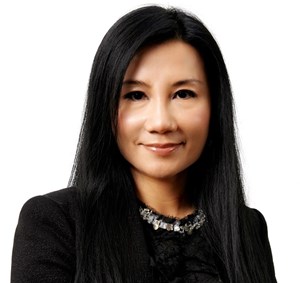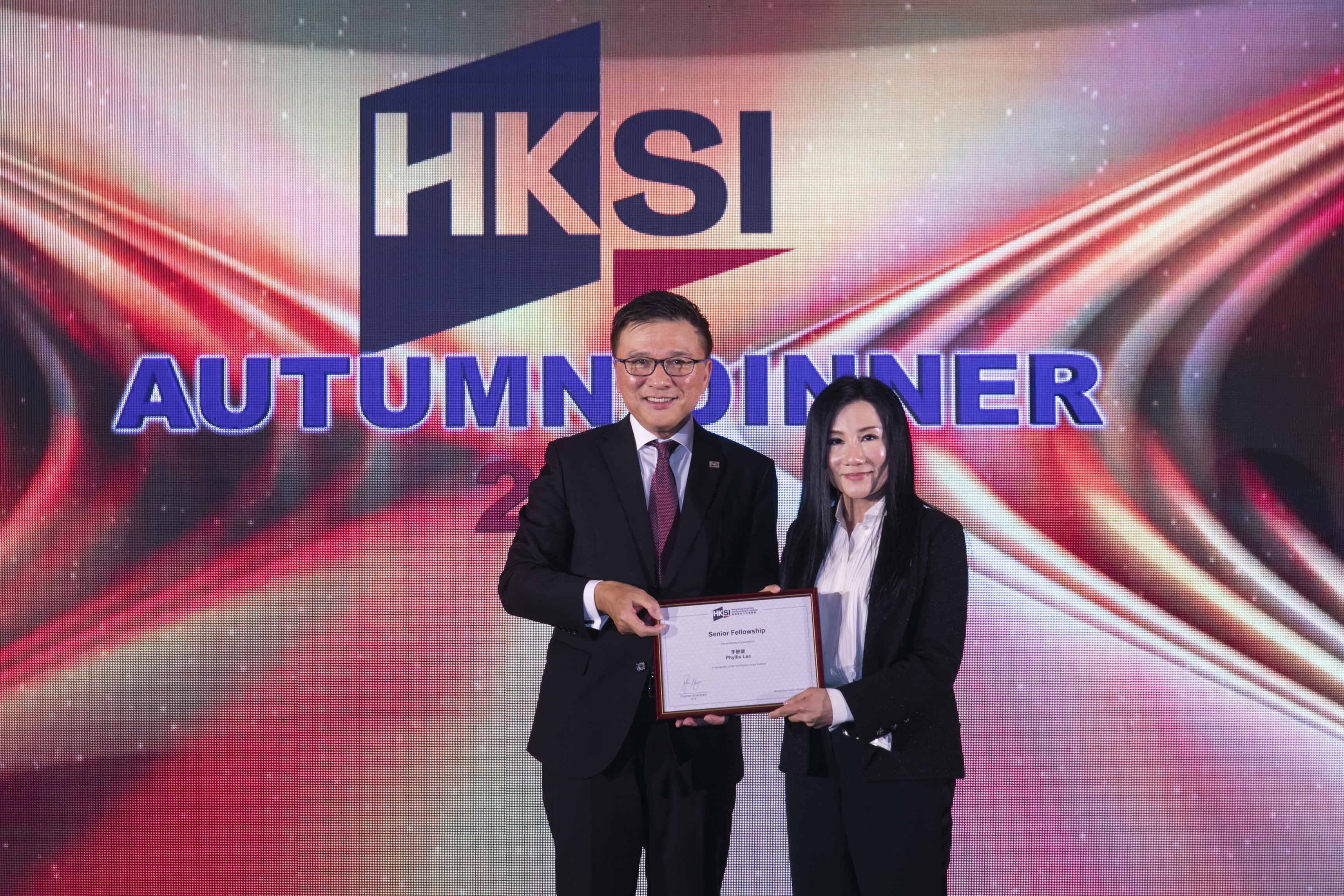Individual
Getting to Know Our Board Director – Ms Phyllis Lee

In her second three-year term as HKSI Institute Board Director, Ms Phyllis Lee is an active member who has served on various committees over the years, including the Corporate Membership Outreach Committee, Education and Development Committee, China Strategy Committee and Space Committee. Ms Lee, the Global Head, Company Formation Operations of Vistra, is currently the Institute’s Innovation and Technology Committee Chairman, and a member of the Examinations Committee.
Q: What appeals to you about board service at the HKSI Institute?
A: Participating at the Board and in the various committees, including taking the lead in the IT Committee, directly translates into professional and personal development for me. The exposure gives me the opportunity to serve HKSI Institute at a broader level. Through the concerted efforts between committee members and the secretariat, I’m glad to see our work contributes to the greater success of the Institute.
Q: Please tell us more about your professional career and share some insights on your industry’s landscape and development.
A: I started my career in the banking industry, specialising in securities services since 1997 and progressed in the realms of public offerings, cross-border corporate actions, and capital market transactions.
My new role at Vistra allows me to broaden my horizon in the value chain of corporate services from a different perspective. Vistra is the market leader in the corporate services industry. Transforming the operating model to a more digitalised infrastructure is the key success of our business. This operating model is a new way of running the organisation that combines digital technologies and operations capabilities in an integrated, well-sequenced way to achieve step-change improvements in revenue, customer experience, and cost.
Corporate service has been growing more sophisticated over the past decade. The paradigm has been shifting from tax planning and privacy as the key drivers for the use of corporate vehicles a decade ago, to demanding asset protection and facilitating foreign direct investment being the top motivations today.
Amid heightened competition, the corporate service industry will need to deliver a more consistent and digitally enhanced service across markets. Unlike the global financial crisis of 2008, the coronavirus shock is purely exogenous, so a systemic financial crisis might be avoidable. For corporate service providers, the crisis will create higher demand for added value services for clients, such as restructuring, refinancing and disputes resolution.
Q: You chair the Institute’s Innovation and Technology (IT) Committee, which oversees the overall strategy and direction of the Institute’s IT projects. What are the key areas that the Committee are working on now and what would you like to accomplish at the Committee and the Board level?
A: I would like to continue contributing to the HKSI Institute and our member community to raise standards through enhanced technology, learning and professional development programmes, and membership service.
The COVID-19 pandemic has accelerated key technology trends, including digital and contactless payment, remote work, robotics, online entertainment, etc. The pandemic has demonstrated the importance of digital readiness, which allows business and life to continue as usual - as much as possible. Building the necessary infrastructure to support a digitized world and stay current in the latest technology will be essential for any business to remain competitive in a post-COVID-19 world.
The pandemic has also driven the swift conversion of the Institute’s offerings to online format. This shift has presented numerous challenges, as preparing online course and examination protocols requires developing detailed course and examination plan design, audio and video content, and technical support equipment. To cope with the rapid move to an online and remote environment, the Institute, led by our Chairman, is driving the development of an online examination system, to be more location-flexible and in a much more environmentally friendly manner.
In addition, we continue to enhance our cybersecurity standards to reduce vulnerability, and ensure that our critical infrastructure systems are secured and resilient as it is being developed and updated.
Q: What are your hopes for the future of the HKSI Institute and our professional community in general?
A: The forces driving the future of the financial service industry – technological change, hybrid work, an inclusive and global talent market, are fundamentally shifting every aspect of the industry. This includes learning, where employees are facing tremendous demand to build new skills and bring new behaviours to the workplace. Not only does HKSI Institute listen and respond to the industry’s needs, we also rapidly scale e-learning to address the requirements for a global, geographically dispersed, and hybrid work model.
By harnessing the power of digital, custom-made learning, I hope to see the HKSI Institute strengthening its position in helping practitioners develop skills to be effective in their current role and be well prepared for future roles, while at the same time, addressing a wide range of employee and employer needs across many different learning styles, locations, and business challenges.

Ms Phyllis Lee accepting her Senior Fellowship from Honorary Fellow Professor KC Chan in 2018, in recognition of her contributions and services to the Institute and the professional community.
